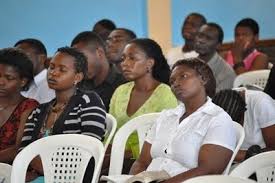Book Review part two: Wayne Grudem's systematic theology (introduction)...
Once again, I will let the quotes speak for themselves...
1. Theology should put action behind your evangelism, and NOT be an isolated study.


"Nowhere in Scripture do we find doctrine studied for its own sake or in isolation from life. The biblical writers consistently apply their teaching to life."
2. Reading the Bible is always best, but it does not mean that a Christian who reads ONLY the Bible understands what it summarizes into. (It is easy to read one verse here or there and make your own summaries, while systematic theology compares all the verses on a topic and gives a hopefully more balanced summary.)
"A formal study of systematic theology will make it possible to formulate summaries of biblical teachings with much more accuracy than Christians would normally arrive at without such a study. (but) summaries of biblical teachings must be worded precisely to guard agains misunderstandings and to exclude fals teachings."
3. We all have our own beliefs, but who knows where they came from. Was it something we heard from a preacher, from school, from relatives/parents, or from the Bible? And how do we know what should shape our beliefs?

"It is of utmost importance therefore that each person beginning such a course firmly resolve in his or her own mind to abandon as false any idea which is found to be clearly contradicted by the teaching of Scripture. BUT it is also very important for each person to resolve not to believe any individual doctrine simply because this textbook or some other textbook or teacher says that it is true, unless this book or the instructor in a course can convince the student from the text of Scripture itself. It is Scripture alone, not "conservative evangelical tradition," or any other human authority, that must function as the normative authority for the definition of what we should believe."
4. Why should Christians study theology?
"Why is it not sufficient simply to continue reading the Bible regularly every day of our lives?
Matthew 28:19-20, Go therefore and make disciples of all nations, baptizing them in the name of the Father and of the Son and of the Holy Spirit, teaching them to observe all that I have commanded you; and lo, I am with you always, to the close of the age.
The task of fulfilling the Great Commision includes therefore not only evangelism but also teaching."
5. When the Bible doesn't agree with us or we have used one verse to justify our stance on some issue....what then?
"Studying theology helps us overcome our wrong ideas. It is helpful for us to be confronted with the total weight of the teaching of Scripture on that subject, so that we will more readily be persuaded even against our initial wrongful inclinations."
6. Will studying theology help our "walk with God?"
"The more we know about God, about his Word, about his relationships to the world and mankind, the better we will trust him, the more fully we will praise him, and the more readily we will obey him. Studying systematic theology rightly will make us more mature Christians. If it does not d this, we are not studying it in the way God intends."
7. What is the difference between major and minor doctrines?
" A major doctrine is one that has significant impact on our thinking about other doctrines, or that has a significant impact on how we life the Christian lfie. A minor doctrine is one that has very little impact on how we think about other doctrines, and very little impact on how we live the Christian life."
Major: authority of the Bible, the Trinity, the deity of Christ, justification by faith....
Minor: types of church government, lord supper styles, timing of great tribulation...

Let's end on a good note...what if we disagree only on minor issues?
"Christians who differ over these (minor) things can agree on perhaps every other area of doctrine, CAN live Christian lives that differ in no important way, and CAN have genuine fellowship with one another."
Once again, I will let the quotes speak for themselves...
1. Theology should put action behind your evangelism, and NOT be an isolated study.
"Nowhere in Scripture do we find doctrine studied for its own sake or in isolation from life. The biblical writers consistently apply their teaching to life."
2. Reading the Bible is always best, but it does not mean that a Christian who reads ONLY the Bible understands what it summarizes into. (It is easy to read one verse here or there and make your own summaries, while systematic theology compares all the verses on a topic and gives a hopefully more balanced summary.)
"A formal study of systematic theology will make it possible to formulate summaries of biblical teachings with much more accuracy than Christians would normally arrive at without such a study. (but) summaries of biblical teachings must be worded precisely to guard agains misunderstandings and to exclude fals teachings."
3. We all have our own beliefs, but who knows where they came from. Was it something we heard from a preacher, from school, from relatives/parents, or from the Bible? And how do we know what should shape our beliefs?
"It is of utmost importance therefore that each person beginning such a course firmly resolve in his or her own mind to abandon as false any idea which is found to be clearly contradicted by the teaching of Scripture. BUT it is also very important for each person to resolve not to believe any individual doctrine simply because this textbook or some other textbook or teacher says that it is true, unless this book or the instructor in a course can convince the student from the text of Scripture itself. It is Scripture alone, not "conservative evangelical tradition," or any other human authority, that must function as the normative authority for the definition of what we should believe."
4. Why should Christians study theology?
"Why is it not sufficient simply to continue reading the Bible regularly every day of our lives?
Matthew 28:19-20, Go therefore and make disciples of all nations, baptizing them in the name of the Father and of the Son and of the Holy Spirit, teaching them to observe all that I have commanded you; and lo, I am with you always, to the close of the age.
The task of fulfilling the Great Commision includes therefore not only evangelism but also teaching."
5. When the Bible doesn't agree with us or we have used one verse to justify our stance on some issue....what then?
"Studying theology helps us overcome our wrong ideas. It is helpful for us to be confronted with the total weight of the teaching of Scripture on that subject, so that we will more readily be persuaded even against our initial wrongful inclinations."
6. Will studying theology help our "walk with God?"
"The more we know about God, about his Word, about his relationships to the world and mankind, the better we will trust him, the more fully we will praise him, and the more readily we will obey him. Studying systematic theology rightly will make us more mature Christians. If it does not d this, we are not studying it in the way God intends."
7. What is the difference between major and minor doctrines?
" A major doctrine is one that has significant impact on our thinking about other doctrines, or that has a significant impact on how we life the Christian lfie. A minor doctrine is one that has very little impact on how we think about other doctrines, and very little impact on how we live the Christian life."
Major: authority of the Bible, the Trinity, the deity of Christ, justification by faith....
Minor: types of church government, lord supper styles, timing of great tribulation...
Let's end on a good note...what if we disagree only on minor issues?
"Christians who differ over these (minor) things can agree on perhaps every other area of doctrine, CAN live Christian lives that differ in no important way, and CAN have genuine fellowship with one another."

No comments:
Post a Comment